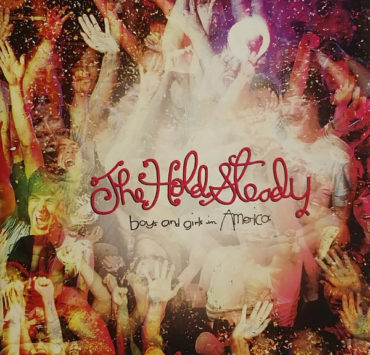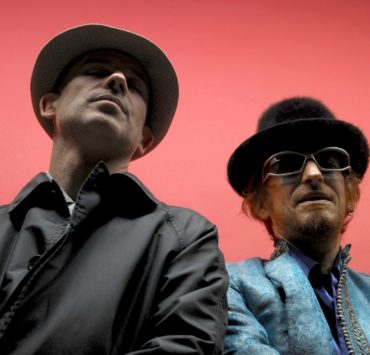Lyrics are a funny thing. Intelligent and interesting music need strong lyrics. But if they are too strong and powerful they can be seen as pretentious. They can also offend (many of the Rolling Stones’ songs), be used to push political goals (‘Eve of Destruction’) or just be downright beautiful poetry (insert almost any Dylan song here…except of course ‘Wiggle Wiggle‘). In recent times, many record companies have been afraid, or not felt that there was a market for such songs. Indie-rock became atmospheric pieces, trying to touch emotions but remaining suitably all encompassing and vague so as to appeal to as many as possible. However, recent times have seen a slight change. Could 2006 see the return of lyricism to popular rock music? Many will see the Arctic Monkeys as proof of this, however there are many more examples of artists pushing lyrically and achieving lasting success.
In 2003, Coldplay released their multi-platinum worldwide smash hit, A Rush of Blood to the Head. Chris Martin’s lyrics were as bland and universal as can be. This brought about an initial rush of sales and plaudits for Coldplay. These lyrics and music were a continuation of the post-britpop era of blandness inspired by songs by artists such as Travis, David Gray and Robbie Williams. The initial success of Coldplay also brought about a range of clone bands – Athlete, Snow Patrol and the Doves all released coldplayesque albums which were all commercial and radio successes. They seemed to tap into a British culture which no longer requires substance and ideas but non-descript feeling (as seen in the recent visit of a whale to the Thames, the death of the Queen Mother, etc..).
Throughout the ‘Coldplay years’ lyricism was the brief of the hip-hop/dance cross over, The Streets. Mike Skinner was touted as a British Eminem. In reality he was much more. His insights into British culture were refreshing at the time and remain so today, despite some dodgy live performances witnessed by myself, he remains ‘the real deal’. He was fighting for lyricism at a time when indie-kids were more interested in Travis’ flowers in the window and the fact that they were “driftwood, floating down the water”.
In recent times, lyricism was the premise of artists such as Willy Mason, whose album Where the Humans Eat became an underground success at the beginning of 2005. He was hailed as a “new Dylan”. As was his producer and discoverer Bright Eyes, who had a larger success in the US than in Europe. But the mainstream was still largely unaffected by this trend. It did suggest that the indie-music scene had moved away from the globalised music of Coldplay however. Other hits for Jack Johnson and the musically bizarre Anthony & the Johnsons showed that lyricism was perhaps being revived as a popular music form. Rufus Wainwright and sister Martha both produced quality records, quite obviously influenced by their genetic material which put the words at the forefront of their art.
Recently, Maximo Park a band from Middlesbrough in the North East of England have brought another edge to lyricism with a more poetic outlook than any of their peers (see: Kaiser Chiefs, Futureheads). At the same time a small underground band were making big noises. The Arctic Monkeys have now exploded onto the mainstream and it is surely only a matter of time before the record industry seeks to build some Arctic Monkey clones. As we all know, they have had two number one singles and their album is set to be the fastest selling debut album since Oasis’.
On a purely commercial level, stronger lyrics does bode well for artists. They seem to have more loyal fans and receive greater praise from music critics. They are also more likely to be there for the long haul. Coldplay’s most recent album initially received praise from the media, but this quickly resulted in many grumblings of discontent and criticism from some of the media in the States, notably for their weak, insipid lyrics. Should Coldplay try and recreate their trademark sound with equally uninspired lyrics, it may be the end of the Coldplay phenomenon.
So now we wait for the record industry to pounce on this trend and create this series of Arctic Monkeys clones (possibly including a fake underground internet movement). However, this in itself is not necessarily a bad thing. I would much rather a series of lyrically intelligent and musically proficient bands than a simply atmospheric band. We can but hope that the vagueness of recent times is already a thing of the past. In a time when Neil Young nearly died and we had a monumental retrospective on Dylan’s early career, it’s about time that modern bands stand up and at least try to reach their lyrical heights.

